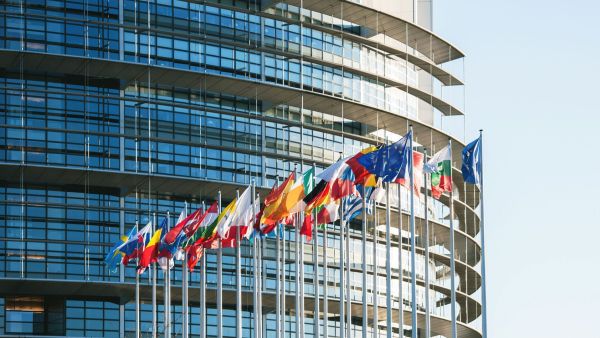Tomorrow, EU finance ministers will again try to agree on transposing the global deal on a 15% minimum effective tax rate for multinationals into European legislation. This could yield up to €64 billion annually, which would be most valuable in the current crisis. EU countries could use these tax revenues to help people cope with the impact of Russia’s war against Ukraine.
The Hungarian government, led by Viktor Orbán, has been blocking this deal for months, although, more than a year ago, it had agreed to it at a global level*. We urge all 27 countries to make the 15% minimum rate a European reality. If this will not be possible tomorrow, the willing countries should trigger the mechanism of enhanced cooperation**.
Aurore Lalucq MEP, S&D spokesperson on taxation, said:
“It is high time that tomorrow all 27 countries finally realise what they agreed to on the international stage. If they fail to do so, again, there is a real urgency to move on by triggering the mechanism of enhanced cooperation. This would ensure maximum cohesion within the EU and give a role to the EU to monitor the 15% rate implementation.
“Last September, the five largest EU economies - France, Germany, Italy, Spain and the Netherlands - said that they were fully determined to follow through on our commitment with any possible legal means. In case of no European deal tomorrow, we call on them to continue their leading role by requesting the enhanced cooperation so the EU can finally take back the lead in the fight for tax justice.
“Our political group has long been calling for a reform of decision-making in tax matters. This is necessary to avoid harmful national vetoes that are paralysing the EU’s capacity to shape ambitious tax policies and deliver tax justice. They also risk jeopardising our international commitments and damaging the credibility of the Union.”
Note to editors:
*In October 2021, 137 countries across the world reached a historic deal to introduce a minimum effective corporate tax rate of 15%, which for the first time curbs global tax competition. This agreement, concluded under the OECD/G20 framework, now needs to be translated into European law and into the legislative frameworks of all other signatories. There is still no deal on its transposition into EU legislation. Just after Poland withdrew its longstanding veto, it is now Hungary blocking the agreement.
**Enhanced cooperation is a procedure that enables a minimum of nine EU member states to cooperate in a particular field within the EU if the union as a whole cannot agree on such cooperation within a reasonable period. The procedure is designed to overcome a stalemate where a particular proposal is blocked by one or more member states. This procedure has been used several times, for example in the fields of divorce law and patents, as well as to protect the financial interests of the EU by setting up the European Public Prosecutor’s Office.
Read more about the S&Ds’ long-standing campaign for tax justice.
Read the op-ed by MEPs Aurore Lalucq, Paul Tang and Pedro Marques https://euobserver.com/opinion/156500











